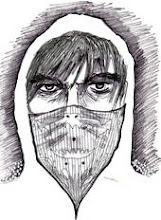Yes, this discussion will be in the form of a film student's perspective, but that's what I do and why I'm taking this course... so shoot me.
I found McDonald's chapter on "Radical Romance" the most insightful so far in this course, especially since we are now getting into films and relevance in pop culture. The Graduate and Annie Hall, two of my most cherished films of this genre, strike me on a personal level because of their brutal honesty and depiction of love and individuality. This is a
pet peeve of mine because, as McDonald states, the two previous sub-genres of sex comedy and screwball are complete opposites and mere foundations for what filmmaking can really achieve once production codes are diminished, thus allowing the filmmaker to portray the romance on a much more personal and controversial level. I especially liked how McDonald breaks down Annie Hall to demonstrate the power of a Director/Actor in a form that can define its own genre. Woody Allen uses the film as a "therapeutic activity" to attempt to dissect the human condition. He uses filmmaking techniques such as jump cuts, flashbacks, sub titles, split-screen, cartoon, third and first person narration to acknowledge the conventions of the traditional romance, European films and false ideology as well as his own flaws as a human being. As McDonald states, these techniques aren't used to dazzle us or ignore the morals Allen is trying to project, but they are used to accentuate how one might reflect on the theme of romance, through bits and pieces of awareness through the subconscious. I love this film because it does play out like a dream, or a confession to an analyst, but instead of words being used, we see images. Sometimes the images are actually contradicting Allen's narration, which allows the audience to take a major part in deconstruction Alvy, even though he deliberately talks to the camera/audience to break the illusion of wholeness in a film. We are reminded constantly that this is not a story, made up of over-used and cliche characters, themes and conversation, but a modern perspective
(and a narcissistic one at that) on society, sexual frustration, paranoia and the reality of romance. Woody Allen is concentrating on the individual and all the flaws that come with it, which is radicalism and subversive when compared to the obvious boy meets and loses girl/ happy ending structure of its predecessors. I feel the best characteristic of films such as The Graduate and Annie Hall are the fact that they don't incorporate happy endings. I mean because, 'cmon...let's face it, life isn't as perfect as the films from the 30's up to the end of the 60's made it out to be. Life isn't exactly divided into the "miserable and the horrible" as Alvy states half-way through the film, but it definitely doesn't always end "Happily Ever After" either. I guess call me a pessimist too, but this is actually one theme I can relate with on a personal level to these films.
Though they are about two decades before my time, I still feel that the films of the 70's, as innovative as they were, are still relevant today and hold their ground as the most honest and analytical depictions of romance... redefining the genre forever.
Subscribe to:
Post Comments (Atom)

No comments:
Post a Comment